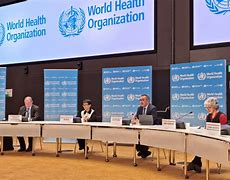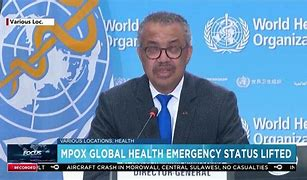
Table of Contents
World Health Organization Calls Emergency Meeting On Mpox Spread
In response to the recent surge in mpox cases worldwide, the World Health Organization (WHO) has convened an emergency meeting to address the growing concern surrounding the outbreak. The decision underscores the severity of the situation and the global health community’s commitment to mitigating the spread of this infectious disease.
Understanding Mpox
Mpox, previously known as monkeypox, is a viral disease that was first identified in monkeys in 1958 and later recognized in humans in the 1970s. It is caused by the mpox virus, which belongs to the Orthopoxvirus genus, the same group of viruses that includes smallpox. Although historically limited to regions in Central and West Africa, recent years have seen an alarming increase in cases outside these areas, prompting the WHO’s urgent response.
The Current Situation
The recent outbreak has been marked by a significant rise in mpox cases across various regions, including countries previously not known for the disease. The surge has been particularly concerning due to the potential for further spread and the strain it places on health systems worldwide.
The symptoms of mpox can be severe and include fever, rash, and swollen lymph nodes. The disease is transmitted through contact with infected animals or humans, and in recent outbreaks, human-to-human transmission has become a major concern. This mode of transmission, combined with the virus’s potential for rapid spread, has heightened fears about the outbreak’s trajectory.
WHO’s Response
The WHO’s decision to call an emergency meeting reflects the seriousness of the outbreak and the need for a coordinated global response. The organization’s emergency committee is tasked with assessing the situation, providing guidance on control measures, and coordinating international efforts to manage the outbreak effectively.
During the meeting, experts will evaluate the current epidemiological data, assess the effectiveness of existing containment strategies, and discuss the need for additional resources and interventions. The WHO will also consider whether the outbreak constitutes a Public Health Emergency of International Concern (PHEIC), which could trigger a more urgent global response and mobilize additional resources.
Key Concerns
Several critical issues are driving the WHO’s emergency response:
- Rapid Spread: The mpox virus has shown an alarming rate of transmission in recent outbreaks, with cases appearing in countries outside its historical endemic regions. This rapid spread necessitates an immediate and coordinated global response to prevent further escalation.
- Healthcare System Strain: The surge in mpox cases is placing significant pressure on healthcare systems, particularly in areas unprepared for such outbreaks. The WHO’s meeting aims to address the need for additional support and resources to manage the disease effectively.
- Vaccine and Treatment Availability: Current treatments and vaccines for mpox are limited. The WHO’s emergency meeting will likely focus on evaluating the availability and distribution of existing vaccines and treatments and exploring options for increasing their accessibility.
- Public Awareness and Education: Effective public health responses require clear communication and education. The WHO will likely discuss strategies to raise awareness about mpox, its symptoms, and preventive measures to help reduce transmission.
- Surveillance and Data Collection: Accurate and timely data is crucial for managing the outbreak. The meeting will address the need for enhanced surveillance and data collection to track the disease’s spread and inform response strategies.
Global Impact
The global impact of the mpox outbreak extends beyond health concerns. Economic, social, and political dimensions are also affected, as countries grapple with the implications of the disease’s spread. The WHO’s emergency response will play a crucial role in addressing these broader impacts and ensuring that countries can manage the outbreak effectively while minimizing disruptions to daily life and economic activities.
Next Steps
Following the emergency meeting, the WHO will likely issue recommendations and guidelines for member states to follow. These may include enhanced surveillance, increased support for healthcare systems, public health campaigns, and coordination of international efforts to control the outbreak.
The WHO’s role in coordinating the global response to the mpox outbreak is vital. By bringing together experts, policymakers, and health officials from around the world, the organization aims to create a unified approach to managing the disease and preventing its further spread.
Conclusion
The WHO’s call for an emergency meeting on the mpox outbreak underscores the seriousness of the situation and the need for immediate and coordinated action. As the global health community comes together to address this challenge, the focus will be on managing the current outbreak, preparing for potential future cases, and ensuring that resources and support are available to those affected.
The outcome of the emergency meeting will be critical in shaping the international response to mpox and in determining the next steps in controlling the disease. The WHO’s leadership and guidance will be essential in navigating this complex situation and mitigating the impact of the outbreak on global health.








